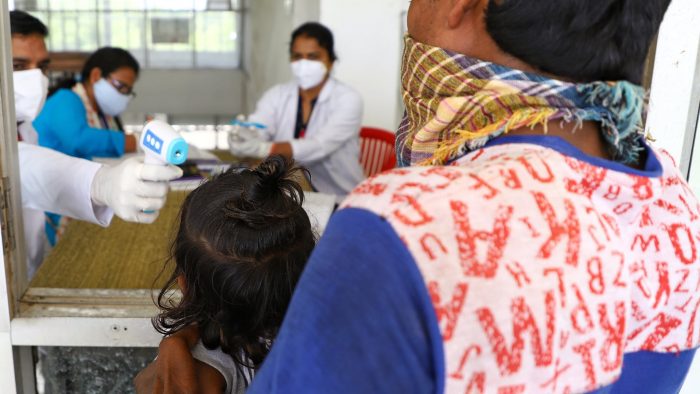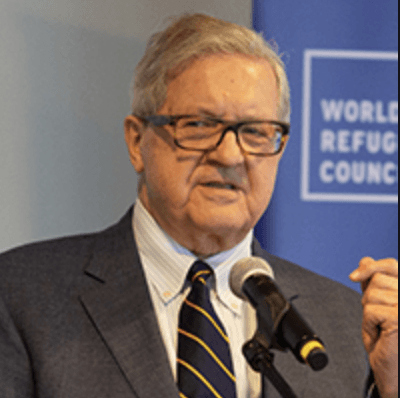Opinion written by Lloyd Axworthy, chair, and Fen Osler Hampson, president, of the World Refugee & Migration Council
UN Secretary-General António Guterres recently warned that “vaccine nationalism” is moving “at full speed” across the developed world. And he is right. As the People’s Vaccine Alliance recently reported, “70 lower-income countries will only be able to vaccinate one in 10 people” even if Oxford-AztraZeneca fulfills its pledge to provide 64 percent of its production to developing countries.
Guterres has pleaded that vaccines should be seen as “a global public good.” That means making them available to everyone, including the world’s poorest and marginalized communities. He has appealed for $4.2 billion in the next two months for the World Health Organization’s COVAX program to enable equitable coronavirus vaccine distribution.
Equitable vaccine distribution represents one of the most challenging, vexatious political issues facing UN member states in 2021. Governments that can afford large-scale purchases have already contracted the lion’s share of vaccine production for their own use. But they have left the rest of the world, where there is limited capability to manufacture and deliver vaccines, high and dry.
Governments that can afford large-scale purchases have already contracted the lion’s share of vaccine production for their own use. But they have left the rest of the world, where there is limited capability to manufacture and deliver vaccines, high and dry.
For the world’s refugee and internally displaced populations, which currently number roughly 80 million, the situation is far more dire. COVID-19 outbreaks are occurring in many refugee communities, particularly in the developing world where individuals live in close quarters often in desperate living conditions without access to clean water or basic medical services. How do we focus attention on their plight and, at the same time, try to mobilize support for them, especially since they have no voice in current decisions about vaccine allocations?
The Global Independent Refugee Women Leaders network and the World Refugee & Migration Council recently organized a virtual panel discussion with hundreds of refugee women and girls from around the globe to discuss how the spread of COVID-19 is affecting them and their communities. Its purpose was to provide a platform for these women to give voice to the challenges they face, help mobilize aid and other forms of assistance, and, importantly, support the vital leadership role they are playing locally and globally.
Their basic message was one of being forgotten, of being “at the back of the queue.” While in some parts of the world we now see a light at the end of the tunnel for the distribution of vaccines, many people — particularly refugees and internally displaced persons — are being left in the dark.
While in some parts of the world we now see a light at the end of the tunnel for the distribution of vaccines, many people — particularly refugees and internally displaced persons — are being left in the dark.
There are efforts underway to guard against a monopolistic control of COVID-19 remedies, including a coalition of countries in which Canada is a member to promote a more equitable sharing of vaccines as they become available. Canada —which has said it wants to donate any surplus vaccine shots to poorer countries — is the second-largest financial supporter of the Gavi COVAX AMC, which will enable 92 low- and middle-income countries to secure vaccines, a commitment that now totals nearly $1 billion with Canada’s International Development Minister Karina Gould’s announcement of $485 million for antibody treatments in support of the Access to COVID-19 Tools Accelerator health systems.
These efforts stand in sharp contrast to countries, such as the United States and Russia, which have adopted a “me first” approach. Of course, one hopes that a new Biden administration will show leadership by taking a more global, publicly spirited approach.
Without a coordinated, collaborative effort that demonstrates a will to share that leaves no-one behind, including the world’s most marginalized citizens, there will be other costs. For example, the Rand organization predicts that vaccine nationalism could cost the global economy up to $1.2 trillion a year in GDP terms if this disease, which has already shown it doesn’t respect national borders, is not eradicated through an aggressive, global distribution vaccine strategy that targets everyone. There will also be untold human suffering and misery, which is unacceptable and an affront to any sense of common humanity or decency. We are working with our women refugee leaders to ensure that this will not be the case.


